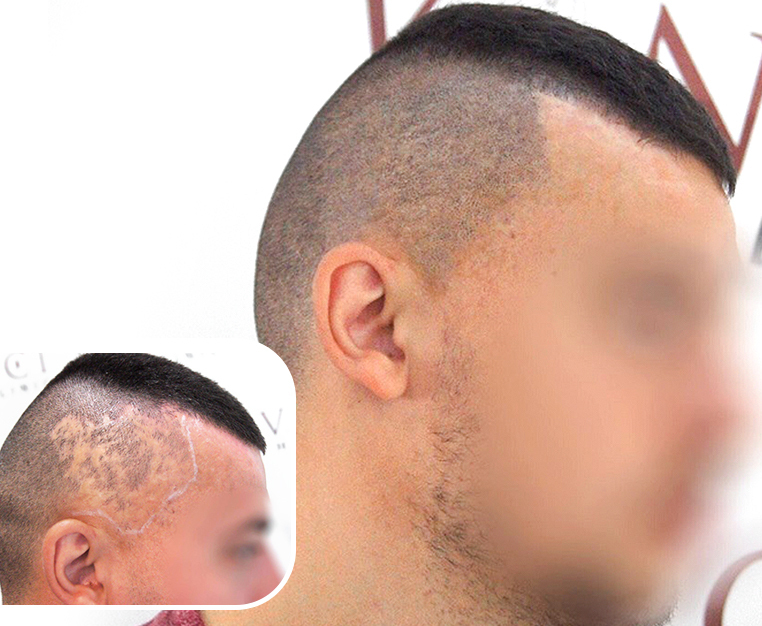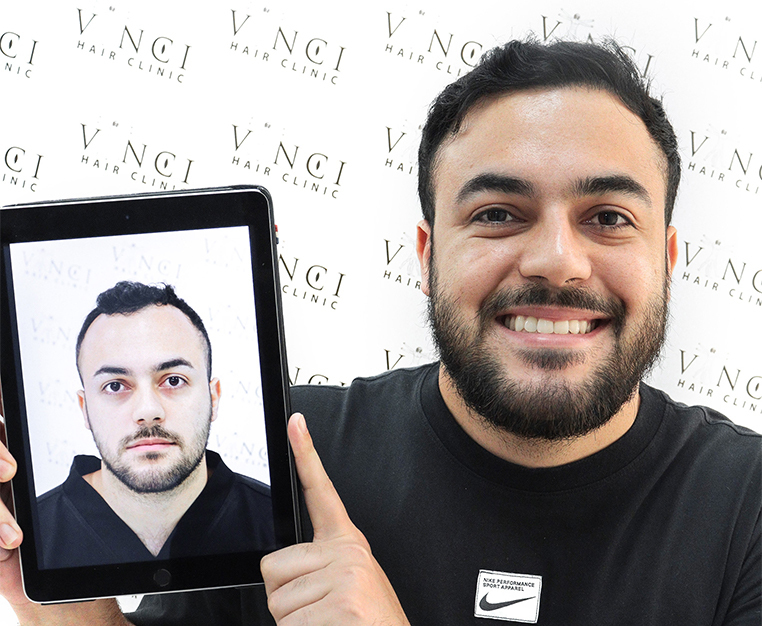What is it with male sports stars and hair transplants? Scotland rugby legend Tim Visser recently became the latest to show off his new look and declare that he was delighted with his result. In doing so, he followed in the footsteps of fellow Scottish international Stuart Hogg and Welsh stars Xavier Rush and Ross Moriarty. And it isn’t just the rugby boys. Footballers Wayne Rooney, David Silva and Cesc Fabregas, former champion boxer George Groves and Brazilian UFC star ‘Shogun’ Rua have all been open about their hair transplants. Is there something about the sporting life that makes an athlete more likely to go for hair surgery?
This article will look at some of the reasons why male athletes might – just might – be more likely to get a transplant than the average male. Keep reading!
No Hiding Place
The first point to note is that for sporting stars these days, there is no hiding place when they’re on the pitch, in the ring or on the track. The old days when major sporting events were covered by one or two cameras are long gone. These days, cameras are everywhere, fitted with lenses designed to pick up a single muscle twitch from any distance before beaming it onto a giant screen. If you have thinning hair or a bald spot, there’s no disguising it.
That constant exposure can easily erode the self-confidence of a young athlete. We’ve all got aspects of our appearance that we maybe don’t like, but not many of us have them shown on national TV, close up and in glorious technicolour! Given that, is it any surprise that some athletes decide to do something about their hair loss?
Psychology
Never mind the camera angle, what about the psychological angle? Psychology plays a huge role in modern sports. Athletes know too well that what goes on in the mind has a huge bearing on how an individual performs in the white heat of competition. Any hint of self-doubt or negativity can be the difference between winning and losing.
Studies have shown that hair loss causes a fall in the self-esteem and self-confidence of those who experience it. If success and failure in your job turn upon the finest of margins, why would you let something eat away at your morale when there is something you can do about it?
Greater Confidence
The above points show why male athletes might consider getting a hair transplant, but men in the wider population have their own motivations, too. They just seem less likely to act upon them. Why would this be? For many, the idea of any kind of cosmetic surgery, including hair transplants, transgresses the unwritten rules governing what it is to be a man. ‘Real’ men shouldn’t care about their appearance, you see. It’s not what red-blooded, virile males are supposed to do.
It’s that sort of outdated, misguided thinking that stops many men from coming forward for hair loss treatment; they’re worried that people will think they aren’t manly enough. Sporting stars, perhaps, don’t have so many doubts about their masculinity. They prove their toughness every time they perform, and they wear their scars like badges of honour. They don’t need to conform to a few outdated stereotypes to prove themselves or their virility.
Resilience
Linked to that notion of confidence in their masculinity is the greater mental resilience of top athletes. Let’s face it, you don’t get to the highest level of any professional sport if you don’t have a bit of steel in your nature. You need it to be a winner in the dog-eat-dog world of competition. You need it to cope with the disappointments and setbacks that are an integral part of this world.
That resilience is an advantage when it comes to getting a hair transplant. Too many men are put off by the stigma that still surrounds the process and by the fear of being the butt of jibes from friends and colleagues. Having some mental resilience means that you are in a better place to ignore this kind of herd mentality and do what you want to do.
Conclusion
If you’re concerned about hair loss or thinning, don’t put off taking action. Hair loss is treated most effectively when it’s treated at an early stage. Besides, you might be worrying unnecessarily; a certain amount of daily hair fall is a perfectly normal part of the hair growth cycle. You won’t know until you’ve spoken with a hair expert.
Vinci Hair Clinic can help with that. We’re one of the largest and most respected hair restoration organisations on the planet, with a network of clinics across the world. We offer a free, no-obligation consultation to all our new clients. It can take place in person at one of our clinics or over the phone using photos. Get in touch today and make an appointment!


